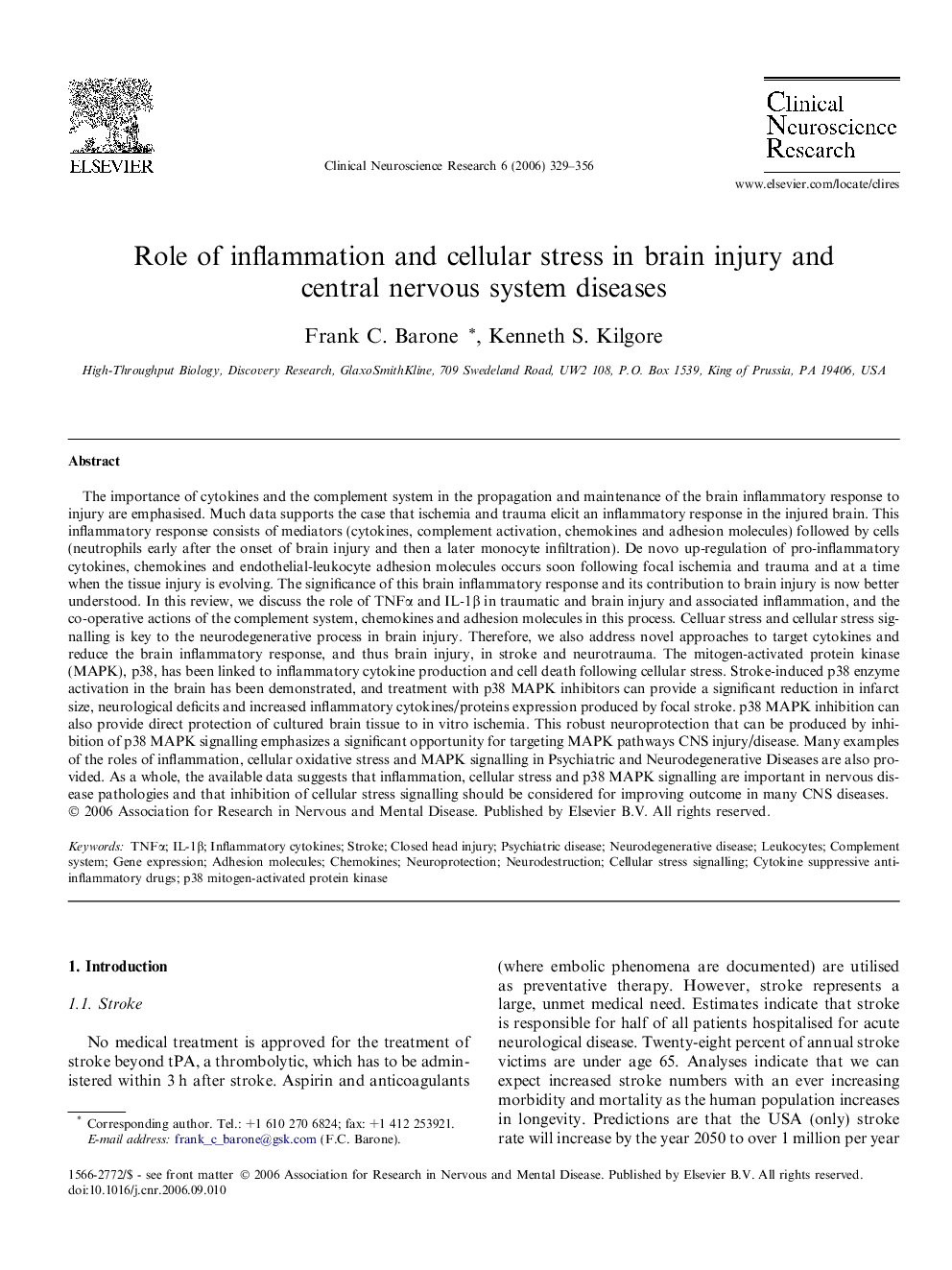| کد مقاله | کد نشریه | سال انتشار | مقاله انگلیسی | نسخه تمام متن |
|---|---|---|---|---|
| 3049254 | 1185178 | 2006 | 28 صفحه PDF | دانلود رایگان |

The importance of cytokines and the complement system in the propagation and maintenance of the brain inflammatory response to injury are emphasised. Much data supports the case that ischemia and trauma elicit an inflammatory response in the injured brain. This inflammatory response consists of mediators (cytokines, complement activation, chemokines and adhesion molecules) followed by cells (neutrophils early after the onset of brain injury and then a later monocyte infiltration). De novo up-regulation of pro-inflammatory cytokines, chemokines and endothelial-leukocyte adhesion molecules occurs soon following focal ischemia and trauma and at a time when the tissue injury is evolving. The significance of this brain inflammatory response and its contribution to brain injury is now better understood. In this review, we discuss the role of TNFα and IL-1β in traumatic and brain injury and associated inflammation, and the co-operative actions of the complement system, chemokines and adhesion molecules in this process. Celluar stress and cellular stress signalling is key to the neurodegenerative process in brain injury. Therefore, we also address novel approaches to target cytokines and reduce the brain inflammatory response, and thus brain injury, in stroke and neurotrauma. The mitogen-activated protein kinase (MAPK), p38, has been linked to inflammatory cytokine production and cell death following cellular stress. Stroke-induced p38 enzyme activation in the brain has been demonstrated, and treatment with p38 MAPK inhibitors can provide a significant reduction in infarct size, neurological deficits and increased inflammatory cytokines/proteins expression produced by focal stroke. p38 MAPK inhibition can also provide direct protection of cultured brain tissue to in vitro ischemia. This robust neuroprotection that can be produced by inhibition of p38 MAPK signalling emphasizes a significant opportunity for targeting MAPK pathways CNS injury/disease. Many examples of the roles of inflammation, cellular oxidative stress and MAPK signalling in Psychiatric and Neurodegenerative Diseases are also provided. As a whole, the available data suggests that inflammation, cellular stress and p38 MAPK signalling are important in nervous disease pathologies and that inhibition of cellular stress signalling should be considered for improving outcome in many CNS diseases.
Journal: Clinical Neuroscience Research - Volume 6, Issue 5, December 2006, Pages 329–356